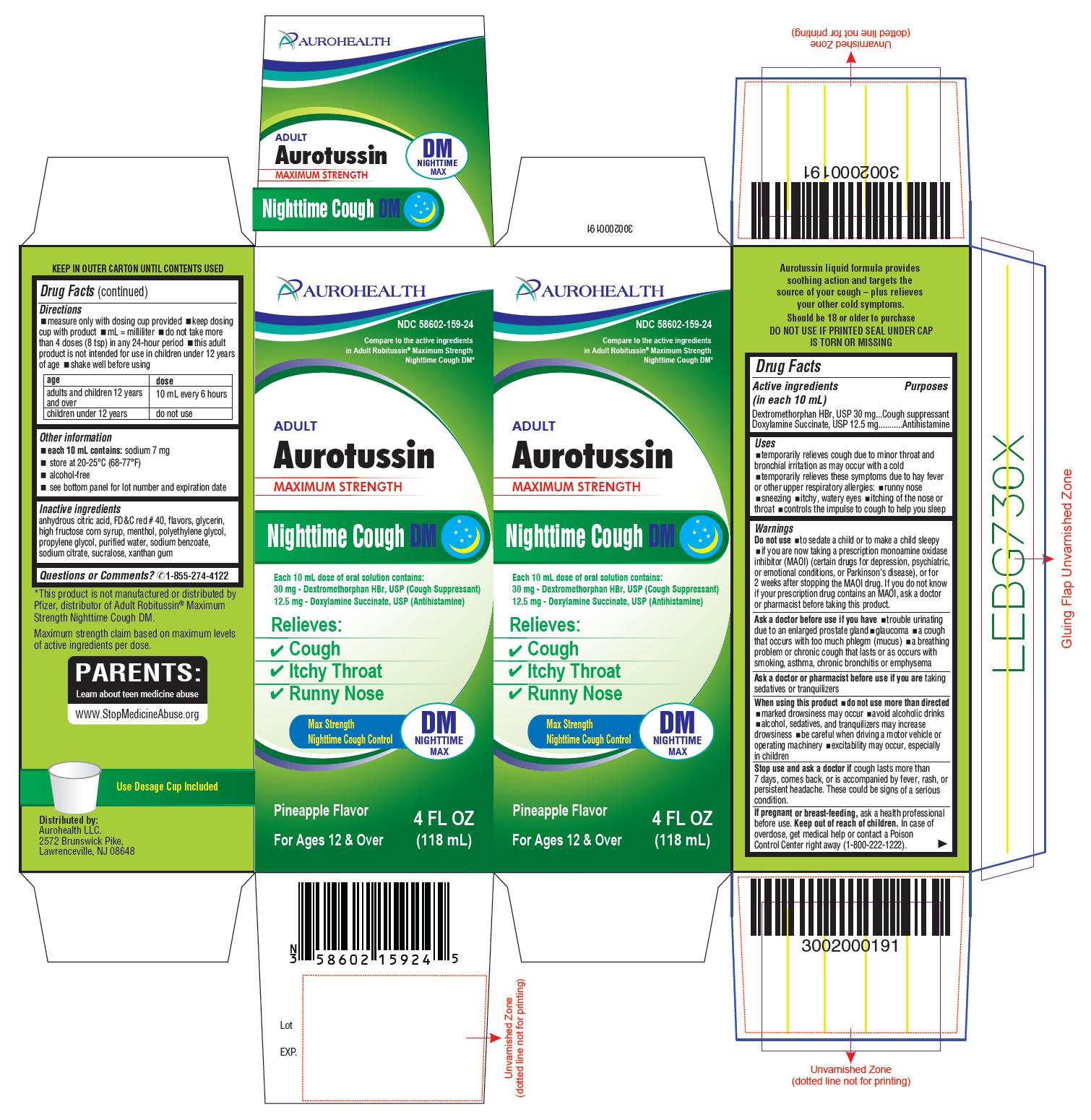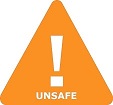Adult Aurotussin Maximum Strength Nighttime Cough Dm while Breastfeeding

What is Adult Aurotussin Maximum Strength Nighttime Cough Dm used for?
Brief: Cough suppressant Antihistamine
Is using Adult Aurotussin Maximum Strength Nighttime Cough Dm unsafe in breastfeeding? Can there be bad consequences for baby if I use it while breastfeeding?

Adult Aurotussin Maximum Strength Nighttime Cough Dm Breastfeeding Analsys
Dextromethorphan hydrobromide while Breastfeeding
SafeCAS Number: 125-71-3
Cough suppressant related with morphine and codeine which is lacking of analgesic or sedative properties. Commonly prescribed by pediatricians. On latest update relevant data on breastfeeding was not found. Because reported low toxicity and mild side effect it is considered to be safe while breastfeeding. Frequently associated to caffeine and other products that are usually compatible with breastfeeding. Avoid use of multiple drug and alcohol containing medication.
Doxylamine succinate while Breastfeeding
UnsafeCAS Number: 469-21-6
It is a first generation antihistamine drug which is related to ethanolamine, with sedative and anti-muscarinic effects. It has been used as hypnotic and for vomiting relief. At latest update, relevant published data on excretion into breast milk were not found. Pharmacokinetic characteristics would favour that it may be excreted into breast milk in significant amount. On a telephone survey, 10% of infants whose mothers were on several types of antihistamine medication have suffered of colicky pain and irritability that disappeared without treatment. For both treatment of mothers and infants would be safer the use of tested antihistamine medication without sedative effect, especially in prematures and infants younger than 1 month of age. Whenever used while breastfeeding, the use of the lower effective dose and for the shortest time as possible is recommended. Follow-up for somnolence and feeding troubles should be warranted. Bed-sharing is not recommended when the mother is on this medication.
Adult Aurotussin Maximum Strength Nighttime Cough Dm Breastfeeding Analsys - 2
Dextromethorphan hydrobromide while Breastfeeding
CAS Number: 125-71-3
Neither the excretion of dextromethorphan in milk nor its effect on breastfed infants have been studied. It is unlikely that with usual maternal doses amounts in breastmilk would harm the nursing infant, especially in infants over 2 months of age. It is best to avoid the use of products with a high alcohol content while nursing.
Doxylamine succinate while Breastfeeding
CAS Number: 469-21-6
Small occasional doses of doxylamine would not be expected to cause any adverse effects in breastfed infants. Larger doses or more prolonged use may cause drowsiness and other effects in the infant or decrease the milk supply, particularly in combination with a sympathomimetic such as pseudoephedrine or before lactation is well established.
What should I do if I am breastfeeding mother and I am already exposed to Adult Aurotussin Maximum Strength Nighttime Cough Dm?
We have already established that Adult Aurotussin Maximum Strength Nighttime Cough Dm is unsafe in breastfeeding and breastfeeding while using Adult Aurotussin Maximum Strength Nighttime Cough Dm is not a good idea however if have already used
My health care provider has asked me to use Adult Aurotussin Maximum Strength Nighttime Cough Dm, what to do?
If your doctor knows that you are breastfeeding mother and still prescribes Adult Aurotussin Maximum Strength Nighttime Cough Dm then there must be good reason for that as Adult Aurotussin Maximum Strength Nighttime Cough Dm is considered unsafe, It usually happens when doctor finds that overall advantage of taking
If I am using Adult Aurotussin Maximum Strength Nighttime Cough Dm, will my baby need extra monitoring?
Yes, Extra monitoring is required if mother is using Adult Aurotussin Maximum Strength Nighttime Cough Dm and breastfeeding as it is considered unsafe for baby.
Who can I talk to if I have questions about usage of Adult Aurotussin Maximum Strength Nighttime Cough Dm in breastfeeding?
US
National Womens Health and Breastfeeding Helpline: 800-994-9662 (TDD 888-220-5446) 9 a.m. and 6 p.m. ET, Monday through Friday
UK
National Breastfeeding Helpline: 0300-100-0212 9.30am to 9.30pm, daily
Association of Breastfeeding Mothers: 0300-330-5453
La Leche League: 0345-120-2918
The Breastfeeding Network supporter line in Bengali and Sylheti: 0300-456-2421
National Childbirth Trust (NCT): 0300-330-0700
Australia
National Breastfeeding Helpline: 1800-686-268 24 hours a day, 7 days a week
Canada
Telehealth Ontario for breastfeeding: 1-866-797-0000 24 hours a day, 7 days a week
